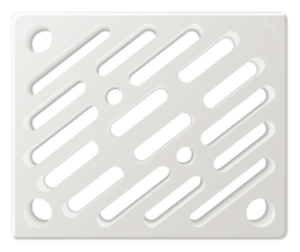Insight
Typically, vaccines are required to be stored between 2°C and 8°C in order to maintain their ability to provoke an immune response in the body [1].
Exposure to temperature outside of the recommended range for more than 20 minutes is classified as a cold chain breach. In 2022 alone, NHS England reported that cold chain breaches resulted in vaccines worth £2.9 million being wasted [2].
Cold chain breaches also cause costly and time-consuming challenges in primary care – not only liaising with vaccine manufacturers and assessing the affected vaccine’s efficacy, but also replacing stocks and reporting to ImmForm (a platform to record vaccine uptake data). Further, existing pharmacy grade fridges have been observed to maintain temperatures below 8oC for only up to one hour following power loss, exacerbating the risk of cold chain breaches.
Intervention
Phase change materials (PCMs) are substances which absorb or release large amounts of heat when they go through a change in their physical state, i.e., from solid to liquid and vice versa.
Phase Change Solutions is a global leader in temperature control and energy-efficient solutions, using PCM’s. Their solution, the Apollo™ Smart Panel is made from proprietary PCMs, referred to as BioPCM®. BioPCM® is made entirely from plant-based materials and is USDA (U.S. Department of Agriculture) certified with 100% biobased content.

Health Innovation East worked alongside Phase Change Solutions to evaluate the effectiveness of Apollo™ Smart Panels at maintaining an acceptable temperature range in pharmacy fridges in the event of a cold chain breach (e.g. a prolonged power outage).
To test the Apollo™ Smart Panel in a real-world setting, a trial was hosted in three GP surgeries within the WGGL Primary Care Network (PCN).
Health Innovation East conducted a series of 12 test cycles with two identical fridges (a test fridge and a control fridge) in each of the GP surgeries to simulate a prolonged power outage in a primary care setting. The test fridge was fitted with five Apollo™ Smart Panels whereas the control fridge remained empty. In each test cycle (12 cycles) the fridges were simultaneously switched off for a 24-hour period.
Impact
Results show that the test fridges fitted with the five Apollo™ Smart Panels were able to maintain their temperature more effectively than their matched control fridge (without the panels). The fridges equipped with the Apollo™ Smart Panels took an average of seven hours longer than the control fridge (in the bottom shelf) to breach a threshold of 8°C.
The results show that widespread adoption of Apollo™ Smart Panels across primary care settings could offer surgeries and health centres significantly more time to safeguard their vaccines in scenarios involving extended power outages. Care homes could also benefit from this technology as both food and medicine storage are required to be carefully regulated. Equally, in hospital settings medicines need to be stored within strict temperature ranges.
“As a practice which has had a significant cold chain breach due to an external power cut in the past, we were incredibly keen to participate in the PCS panels trial. Our experience of a cold chain breach and the process that followed was lengthy and involved, this took valuable time away from the day-to-day care of our patients and involved contacting all vaccine companies and the local immunisation team to ensure ongoing safety with the vaccinations involved. Anything that would enable longer cold stability in the fridges if this happened again would be a very valuable tool. The trial was easy to conduct and we had excellent support from the team. The results look fantastic and we as a team feel that the PCS panels have been a great success.”
– Lead Practice Nurse, WGGL PCN
Read the evaluation report
Read the full evaluation report: ‘Trialling Apollo™ Smart Panels in NHS primary care settings’ here.
References
[1] East Screening and Immunisation Team. (2021). Vaccine Storage and Handling – Cold Chain Policy. NHS England and NHS Improvement – East Public Health England – East of England. https://www.england.nhs.uk/east-of-england/wp-content/uploads/sites/47/2022/07/East-Cold-Chain-Policy-April-2021-v5-6.pdf
[2] Vaccine update: issue 338, May 2023. (2023, May 31). GOV.UK. https://www.gov.uk/government/publications/vaccine-update-issue-338-may2023/vaccine-update-issue-338-may-2023

